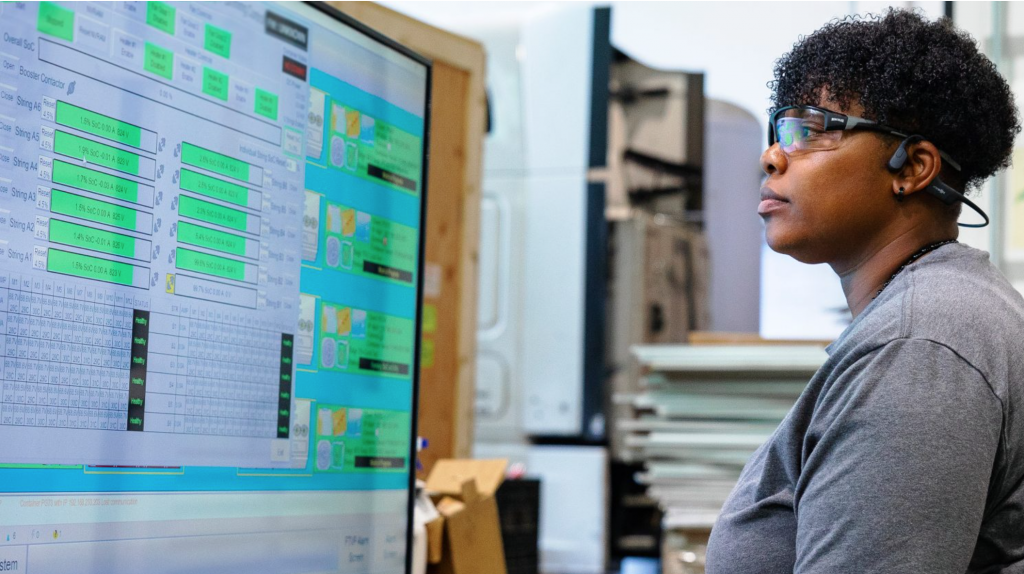
Sherrell H., a container test technician, checks the quality of battery containers at the Eos Energy Enterprises facility in Turtle Creek, PA. (Source: eose.com)
Zinc Batteries May Enable Energy to Be Stored at a Lower Cost than Via Lithium
According to a story on MIT’s technologyreview.com, The U.S. Department of Energy (DOE) recently made a $400 million loan to Eos Energy, the leading developer of zinc-halide batteries, in an effort to encourage the development of an alternative to lithium batteries.
The effort to develop an alternative to lithium is due to its expense. Even though lithium batteries are cheaper now than for many years before, it’s still costly to use them for energy storage. Eos Energy has the goal of bringing those costs down with its zinc-halide batteries.
“The loan is the first ‘conditional commitment’ from the DOE’s Loan Program Office to a battery maker focused on alternatives to lithium-ion cells. The agency has previously funded lithium-ion manufacturing efforts, battery recycling projects, and other climate technologies like geothermal power.”
Demand for energy continues to soar due to server farms, crypto mining, AI and other technologies. Despite their growth in use to increase the amount of energy solar panels and wind turbines are not reliable sources. Maintaining renewable resources for 24-hour energy access requires storing energy. By 2050, the U.S. DOE estimates that between 225 and 460 gigawatts of long-duration energy storage capacity will be needed to power the country’s grid.
Eos reengineered batteries “from the ground up,” giving them added benefits, according to Francis Richey, vice president of research and development at Eos.
“Eos’s batteries use a water-based electrolyte (the liquid that moves charge around in a battery) instead of organic solvent, which makes them more stable and means they won’t catch fire, Richey says. The company’s batteries are also designed to have a longer lifetime than lithium-ion cells—about 20 years as opposed to 10 to 15—and don’t require as many safety measures, like active temperature control.”
To reduce costs, the company needs to ramp up production and scale up, making the batteries cheaper to produce. The loan will allow Eos to build up its manufacturing capacity at its plant in Pennsylvania. The DOE will monitor its progress and require the company to hit production goals as part of the loan agreement.
read more at technologyreview.com







Leave A Comment